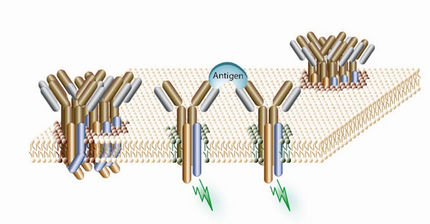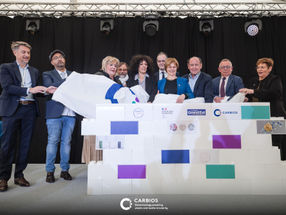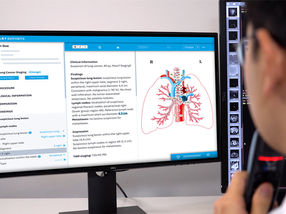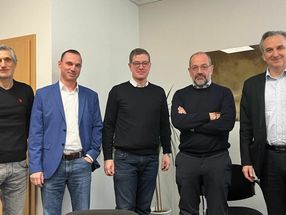Survey Uncovers Challenges and Promising Directions for Autoimmune Disease Research
18-Jun-2004
Arlington. A recent survey shows strong agreement among immunologists that the heterogeneity of autoimmune diseases is the most significant challenge they face in their search for common pathway targets. The 650+ researchers surveyed by bioinformatics, LLC also reported that their difficulty in obtaining patient samples hinders their ability to monitor disease changes over time.
These findings are detailed in "Overview of Autoimmune Disease Research," the latest report from BioInformatics, LLC, a leading provider of market research to the life science industry. Taking a unique approach to identifying major themes and bottlenecks within the field of autoimmunity, the study included nearly 60 e-Interviews as well as a 20-question online quantitative survey of more than 650 immunologists. The opinions of this broad sample of the immunology research community were then reviewed and commented upon by noted thought leaders such as Betty Diamond, M.D., David Beller, Ph.D. and Pascale Alard, Ph.D. to offer additional insights into the future of autoimmune research and therapies.
"It is increasingly important for biotech and pharmaceutical companies to monitor activity in basic and preclinical research because this knowledge will help them validate their product development strategies," said Tamara Zemlo, Ph.D., MPH, Senior Scientist for BioInformatics, LLC. Despite millions of dollars being invested each year in an effort to understand the underlying mechanisms and genetics of diseases such as diabetes mellitus type 1 and rheumatoid arthritis, autoimmune research remains a complex field with many important issues still unaddressed. Indeed, this area of research has become so broad that scientists have differing opinions on which strategic approaches will lead to the most significant advances.
"This field is so diverse, and with so many labs pursuing such unique approaches, it's easy to lose sight of the linkages between leading researchers," said Zemlo. "For instance, 26% of those surveyed think that understanding how to tolerize an individual to his or her own cells is the most important research question to be answered. But at the same time an only slightly smaller number of researchers feel that understanding how the production of inflammatory cytokines are terminated would be a more significant scientific advance. A broad-based survey provides a high-level view of autoimmune disease research that allows us to identify important commonalities and differences in approaches."
The research being conducted by the respondents to this survey serves as the foundation for identifying potential targets for treatment and developing novel therapies to prevent, modulate and ultimately cure autoimmune diseases. In addition to answering questions about the directions of their research and the challenges they face, the scientists surveyed also commented on what new technologies were needed to further their work. In particular, immunologists are calling on life science companies to develop products that expedite in vivo cell-specific delivery so that they can study the effects of experimental therapeutics on these cells. Improvements are also needed in software for collecting and analyzing immunological data and products to support specialized cell culture.
Many of the respondents to the survey were members of The Science Advisory Board, an online market research panel of more than 20,000 life scientists organized by BioInformatics, LLC in 1997. "For years, we've surveyed the scientific community about emerging technologies and the instrumentation and kits used in biological research," commented Zemlo, who also serves as Director of The Science Advisory Board. "However, this report represents one of the first efforts to apply survey research techniques to benchmark the current state of the science in a particular research area that is of great interest to the pharmaceutical industry. We intend to use this high level data on behalf of our clients as a starting point for more focused qualitative explorations into specific diseases and promising lines of investigation."
Most read news
Topics
Organizations
BioInformatics
Other news from the department business & finance

Get the life science industry in your inbox
From now on, don't miss a thing: Our newsletter for biotechnology, pharma and life sciences brings you up to date every Tuesday and Thursday. The latest industry news, product highlights and innovations - compact and easy to understand in your inbox. Researched by us so you don't have to.

























































